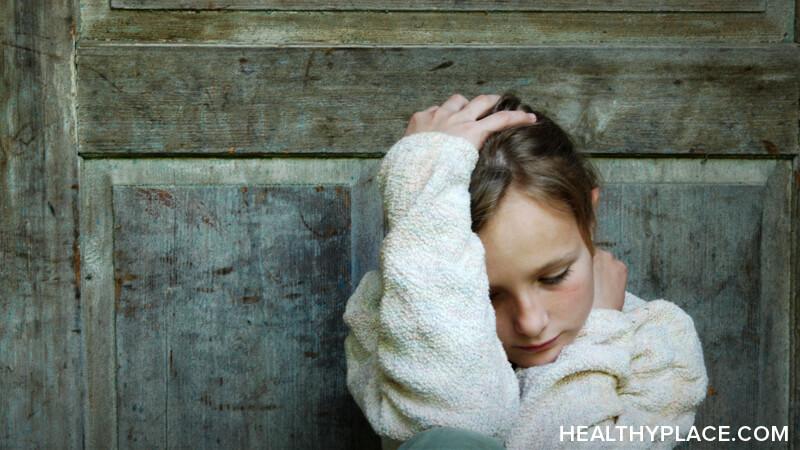SAD, Schizoaffective Disorder, and the COVID Pandemic

I wasn’t going to write another article about my seasonal affective disorder (SAD) but, compounded with my schizoaffective disorder, my generalized anxiety disorder (GAD), and with COVID, it’s been brutal this year.
Seasonal Affective Disorder and Schizoaffective Disorder
I experience SAD symptoms in winter, especially after Christmas, and in the summer when the temperatures sizzle above 90 degrees. Still, SAD is usually associated with winter, and that’s what I’m writing about here.
I’ve been thinking all sorts of nasty things about myself this winter. One kind of funny thought is that I look like Paulie from the movie Goodfellas. (In case you haven’t seen the movie, Paulie’s an older, overweight man.)
What isn’t so funny is that I’ve been calling myself mean names when I make a mistake. Last week, I pulled on the shower curtain a bit too hard, and the shower curtain rod came toppling down. I didn’t hear schizoaffective voices, but a voice in my head called me stupid and incompetent. Never mind that we have a really crappy shower curtain rod that shouldn’t fall just because you pull the curtain.
Another time, I criticized myself when I was in the car with my mom and I didn’t know how to direct her to a restaurant I’d been to a million times. This voice in my head is so prevalent that my dad named it “Bad News Betsy.” Ms. Betsy told me once again that I was stupid and that I couldn’t get anything right. I was afraid that the next time I experienced the schizoaffective symptom of hearing voices, Bad News Betsy would be putting me down, but luckily, the most recent time I heard voices, Betsy didn’t come along.
Seasonal Affective Disorder and Schizoaffective Disorder Make Me Think I’m Not Brave
Tonight, SAD is making me think that I’m not brave. It is true that I’m afraid of a lot of things, but I try my best to face my fears. It’s just that, because of the time of year, my schizoaffective disorder and generalized anxiety are worse so it’s harder to face my fears. And I’m afraid of the silliest things. I’ve written about how I’m afraid to wash my hair. I’m also often afraid to go outside because I’m afraid of not being able to socially distance myself from someone who may come along, even though I always wear a mask. So, on top of everything else, I’m cooped up inside. And it’s because of my own fear (see: not brave).
I’m taking a lot of the vitamin supplements recommended by my doctor to fight winter SAD. My husband Tom pointed out that walking past people outside is no different than walking past them in the grocery store, where I pass them unafraid. Right now, if I were to socially distance from people on a walk outside, I’d have to slog knee-deep in the snow.
I wrote in my diary, over and over again,
"Get through March, get through March.”
I’m writing this in February, but I know that things get easier by the end of March. And maybe a vaccine will be available to my age group soon. But for now, I am juggling COVID, schizoaffective anxiety, and SAD. Wish me luck.
(For more information about SAD, see here.)
APA Reference
Caudy, E.
(2021, March 4). SAD, Schizoaffective Disorder, and the COVID Pandemic, HealthyPlace. Retrieved
on 2026, March 4 from https://www.healthyplace.com/blogs/creativeschizophrenia/2021/3/sad-schizoaffective-disorder-and-the-covid-pandemic
Author: Elizabeth Caudy
Well I know that you are beautiful, smart and brave! And everyone else who knows you knows this!!
The idea of that inner voice is called “the super ego” going back to Freud’s tripartite model of the ego.
Sometimes my inner voice - or inner critic- is not only mean, but sadistic. I will allow the voice to say REALLY means things, it can be some pretty intense negative self talk.
I think it’s REALLY important to understand that this voice does NOT come from the outside, but from within. What ever stage we may be at in our personal development, we at least some control over that inner, critical voice.
A good strategy I have found is to just remind myself “Hey, I’m human.” As you know I love to cook, so I might make a mistake in the kitchen and get really mad at myself, and lately will literally say (and out loud if needed) “It’s okay. This olive oil spilled, or that salad I dropped can be cleaned up in just a couple of minutes.” It’s like reprogramming my own inner voice to be helpful, and it has worked!
I know winter is hard for you. Keep up the good work though Elizabeth. You’re walking a lot, and doing ballet which is so good for you. Spring is just around the corner.
I love you so much.
John
Dear John, Thank you for your comment. It's always a pleasure to get comments from you. I have a list of Dialectical Behavior Therapy (DBT) coping thoughts, and one of them is something along the line of "Nobody's perfect; everybody makes mistakes." It reminds me of your saying to yourself "Hey, I'm human." It works! Thanks for your insights, and I love you so much too. Love, Elizabeth